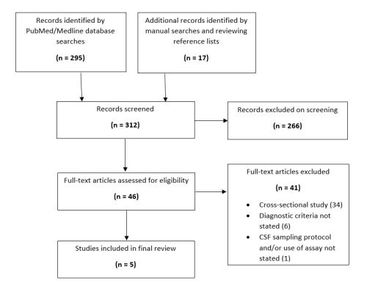Jabbari, E;
Zetterberg, H;
Morris, HR;
(2017)
Tracking and predicting disease progression in progressive supranuclear palsy: CSF and blood biomarkers.
Journal of Neurology, Neurosurgery & Psychiatry
, 88
pp. 883-888.
10.1136/jnnp-2017-315857.

Preview |
Text (Article)
Jabbari_Tracking and Predicting Disease Progression in PSP - revisions final.pdf - Accepted Version Download (363kB) | Preview |
![[thumbnail of Figure 1]](https://discovery.ucl.ac.uk/1551612/3.hassmallThumbnailVersion/Diagram.jpg)  Preview |
Image (Figure 1)
Diagram.jpg - Accepted Version Download (18kB) | Preview |
![[thumbnail of Figure 2]](https://discovery.ucl.ac.uk/1551612/8.hassmallThumbnailVersion/Flowchart.jpg)  Preview |
Image (Figure 2)
Flowchart.jpg - Accepted Version Download (21kB) | Preview |
Preview |
Text (Supplementary Table 1)
Jabbari_Supplementary table.pdf - Accepted Version Download (201kB) | Preview |
Abstract
Progressive supranuclear palsy (PSP) is a rare and progressive neurodegenerative condition characterised pathologically by neuronal cell loss due to abnormal tau deposits. Clinically, the condition manifests as parkinsonism with the addition of progressive balance, speech, swallowing, eye movement and cognitive impairment, ultimately leading to death. Measuring change over time in neurodegenerative conditions is central to defining the effects of therapeutic intervention and disease biology. The current gold standard for measuring clinical disease progression in PSP is the PSP Rating Scale score. However, such scales may be affected by intrarater and inter-rater variability. In addition, their use in clinical trials may be hindered by differences in the time interval between pathological disease progression/response to therapeutics and change in clinical state. Therefore, the need for reliable disease progression biomarkers to complement clinical rating scales is clear. Here we discuss the benefits of using biomarkers to predict and track disease progression in both clinical and research settings. Through reviewing the literature to date on the role of cerebrospinal fluid (CSF) and blood biomarkers, we highlight data that reveals the ability of CSF and plasma neurofilament light chain (NF-L) to predict and track clinical disease progression in PSP. We also discuss the need for large-scale longitudinal studies to identify novel biomarkers.
Archive Staff Only
 |
View Item |


